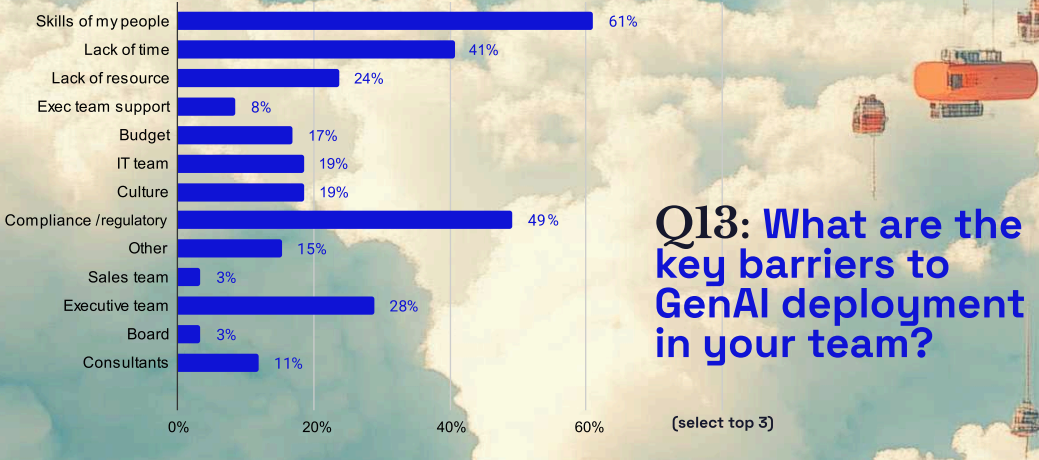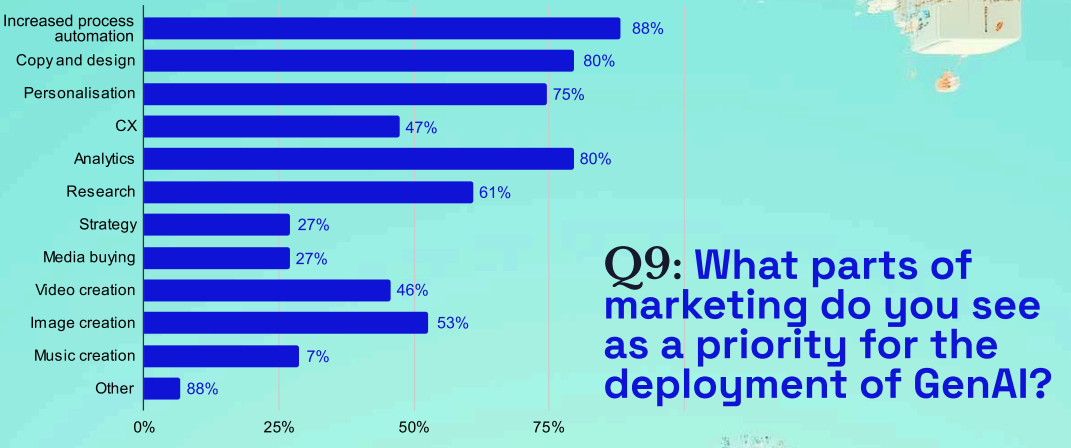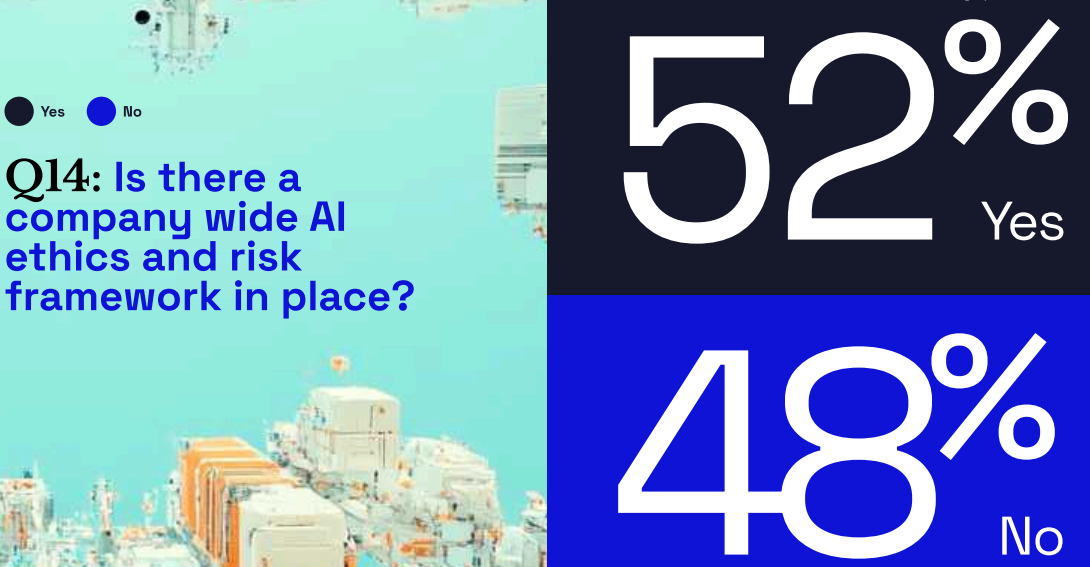Australian marketers are keen on AI, but the latest research shows many are still at the starting line when it comes to preparedness and practical adoption.
That’s the key finding from the inaugural AI Readiness Benchmarking Report from the Australian Centre for AI in Marketing (ACAM), which reveals that more than half of marketing teams are classed as “Beginners” in their AI maturity journey. The study, based on a survey of 60 Australian CMOs, introduces the country’s first formal AI Readiness Score to assess capability across leadership, ethics, data, governance, and more.
Mediaweek sat down with ACAM co-founder Douglas Nicol to unpack the findings, explore the risks of rushing into AI without proper frameworks, and understand what’s holding teams back from moving up the readiness curve.
Why the survey was created
When ACAM set out to understand where Australian marketing teams were at with AI adoption, Douglas Nicol said they kept hearing the same three questions: “Are we ready for AI as a team?” “Is our marketing strategy AI-ready?” and “Am I, as a leader, prepared for AI?”
“We felt we needed to create some data here to help guide marketers in Australia as to what best practice looks like and how they rank versus peers and versus competitors.” Nicol said. “ It was really just an independent way of doing that and creating some data so that we can start answering those questions.”
The resulting AI Readiness Benchmarking Report is Australia’s first attempt to quantify AI preparedness for marketing teams, across strategy, skills, ethics, leadership, data, and governance. It’s no one-off project. ACAM plans to publish the benchmark annually to track industry progress over time.
“Our long-term vision is that every marketer in Australia adopts AI with confidence and clarity.” Nicol said. “Our industry is one of the earliest that’s been transformed by AI, and we need to be ready for this. And it needs to be a positive story, not a story of cost-cutting. It needs to be a story about better marketing.”
The ACAM ‘AI Readiness Score’
The centrepiece of ACAM’s new research is the introduction of Australia’s first AI Readiness Score for marketing teams, a structured framework designed to benchmark progress and maturity in AI adoption.
The score evaluates readiness across seven dimensions: team skills, leadership, governance, strategy, data, ethics, and measurement. Based on these, marketing teams are grouped into three tiers:
• Beginner (52%): Early interest in AI but minimal implementation or strategic planning.
• Emerging (40%): Demonstrating momentum but lacking consistency and leadership confidence.
• Advanced (8%): Strong leadership, strategic alignment, and integrated AI capabilities.
Nicol, said the score was designed to serve both leadership and frontline marketers. “I actually think there has to be a bottom-up and a top-down approach.” he said. “(Any marketer) can look at the seven dimensions that we’ve identified to put people into the beginner, emerging, and advanced, and take a more holistic view of planning.”
Nicol stressed that AI readiness must be both a strategic and cultural shift. “You’ve got to have leadership with real vision, leadership that sees this as a strategic business opportunity, not just a way of cutting costs. Sometimes leadership just goes, “Yeah, we can save 20% on headcount, go do it.”. That’s not a great place to be, as opposed to focusing on how AI can enable growth.”
Barriers to progress
While more than half of marketing teams (52%) are currently in the “Beginner” category of AI readiness, several recurring challenges are preventing them from moving forward.

ACAM’s AI Readiness Benchmarking Report – “What are the key barriers to GenAI deployment in your team?”
Nicol identified the three main barriers to AI progress as time, nervousness around ethics frameworks, and skills. Marketing teams, he said, are often too time-poor to engage in long-term planning. At the same time, risk and compliance concerns continue to slow momentum. And across the board, skills lag behind ambition, with 61% of CMOs citing skills gaps within their teams as the biggest obstacle to AI adoption. Nicol says it’s a problem that runs deeper than just learning how to use new tools.
“In the short-term, it’s very much about tool competence.” Nicol said. “In the longer-term, it’s going to be about how can I do better marketing, how can I deliver growth for the organization, how I can lower the cost of sale by focusing on the fundamentals of marketing, and how does AI support me on that strategic journey.”
“We are in this transition from tool time, and everyone spends their time talking about tools. Now, a bit of time on the tools, great, but there is a bigger play and a bigger opportunity here than just tool time.”
Customer insight gets a reboot
While much of the industry focus has been on GenAI’s ability to speed up content production, a growing number of marketers are turning their attention to customer research.

ACAM’s AI Readiness Benchmarking Report – “What parts of marketing do you see as a priority for the deployment of GenAI?”
According to the report, 61% of CMOs view research as a priority area for AI deployment, placing it above strategy (27%) and media buying (27%), and just behind personalization (75%), analytics (80%), copy/design (80%), and process automation (88%). For Douglas Nicol, it’s one of the most transformative opportunities AI presents.
“Traditionally, research is something that takes a bit of time, is very expensive, and AI is enabling a whole new generation of products and companies that can deliver customer insight, allow us to get closer to the customer every single day at a much lower cost.” he said. “A lot of time is spent in marketing departments debating as to whether a customer would, with this product, fulfill this customer need.”
This shift could reshape the way marketers make decisions, Nicol suggested, moving beyond instinct and internal debate toward real-time, data-informed insight. “That allows you to be a lot more customer-focused. I’m excited about that.”
Flying blind
Despite growing enthusiasm for AI, many Australian marketing teams remain unprepared for its risks, particularly around ethics and governance.

ACAM’s AI Readiness Benchmarking Report – “Is there a company wide AI ethics and risk framework in place?”
The report found that nearly half (48%) of CMOs said their organisation lacks an ethics or risk framework for AI. Even among those that have one, most admitted it wasn’t well understood across their team. That gap, according to Nicol, presents a clear brand risk.
“Generative AI (is) becoming increasingly customer-facing. Customers are engaging with intelligent agents and getting personalised experiences, and there’s a real danger if you don’t have your ethics, risk, and brand protection in place.” said Nicol. “In terms of brand risk, that is really dangerous stuff — it could really damage the brand if it gets caught with biased data or experiences that don’t work well.”
The report suggests that without embedding clear AI policies and ethical guardrails, marketers risk repeating mistakes of the past, rushing into new technologies without ensuring they align with brand and business strategy.
The full ACAM 2025 AI Readiness Benchmarking report is available here.


